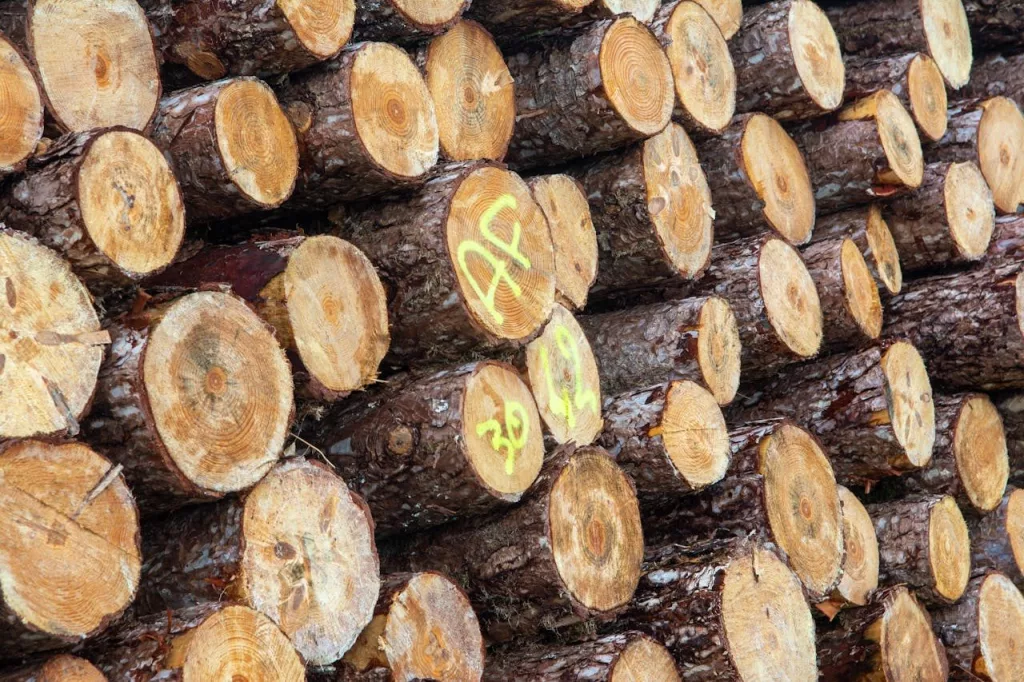PULLMAN, WA – A Washington State University professor is one of a dozen researchers who signed an open letter noting that a proposed expansion of logging on federal lands may have some benefits — but that the firing of forestry experts and cuts in research could undermine that potential.
The result, they say in the letter published Thursday at the website of the journal Science, could harm wildlife, increase wildfire risk and eliminate irreplaceable carbon stores in national forests.
Austin Himes, an assistant professor in WSU’s School of the Environment, said that the idea of increasing domestic timber production and relying less on imports has promise. But focusing solely on speeding up the pace of logging risks other priorities that “evidence-based” forestry practices seek to balance.
“If we’re reducing the work force in the Forest Service and these agencies that are going to be asked to implement this increase in production on public lands, that poses a great risk, in our view, of leading to a situation where instead of doing forestry in a way that creates these win-win solutions, we actually make things worse,” Himes said in an interview.
The letter comes as the White House has called for rolling back environmental regulations and increasing logging by 25% across more than 100 million acres of national forest land, mostly in the West. The orders are intended to reduce American reliance on imported timber, reduce wildfire risk, and “to protect our national and economic security.”
The White House has called for rolling back environmental regulations and increasing logging by 25% across more than 100 million acres of national forest land.
At the same time, the Forest Service has seen staffing cuts of roughly 10%. In the letter published at Science, the scientists emphasized that the goal of building a sustainable program of increased domestic logging is “endangered by recent firings of federal scientific and technical experts.”
The letter was signed by researchers from institutions across the country, led by Matthew Betts, a professor of landscape ecology at Oregon State University. In the letter, they emphasize that there could be benefits for global biodiversity and climate change if domestic logging is increased to meet more of the nation’s demand for wood products.
For example, they note that U.S. reliance on imported lumber has environmental consequences elsewhere — when logging in old-growth forests was restricted domestically, for example, the result was a sharp reduction in old-growth habitats in Canada, as that country sent more timber south. The letter also cites research showing that the effects of U.S. forestry imports has contributed to the destruction of wildlife habitat worldwide —between 2001 and 2015, the international rate of such “range loss” for vertebrates that depend on forests has been five times the rate in the U.S.
On the other hand, increased logging domestically comes with environmental downsides, the letter notes.
“Many U.S. forests harbor large carbon stores and threatened species that are vulnerable to increased logging and weakening of environmental regulations. For example, the Pacific Northwest’s rainforests support 5 billion (metric tons) of irrecoverable carbon and remaining populations of the marbled murrelet and the spotted owl.”
And while the administration cites reducing wildfires as one rationale for the proposed changes, the researchers said increased logging, if focused only on efficiently increasing timber production, could reduce the ability of forests to withstand growing threats from pests and wildfires.
Himes said it’s a moment of “opportunity or crisis.”
“If implemented correctly, this has potential to have net benefits for biodiversity, for climate and our economy,” Himes said. On the other hand, without investments in the experts and systems that produce sustainable forestry, “it’s hard to imagine that we get from where we are today to a 25% increase without negative impacts.”
